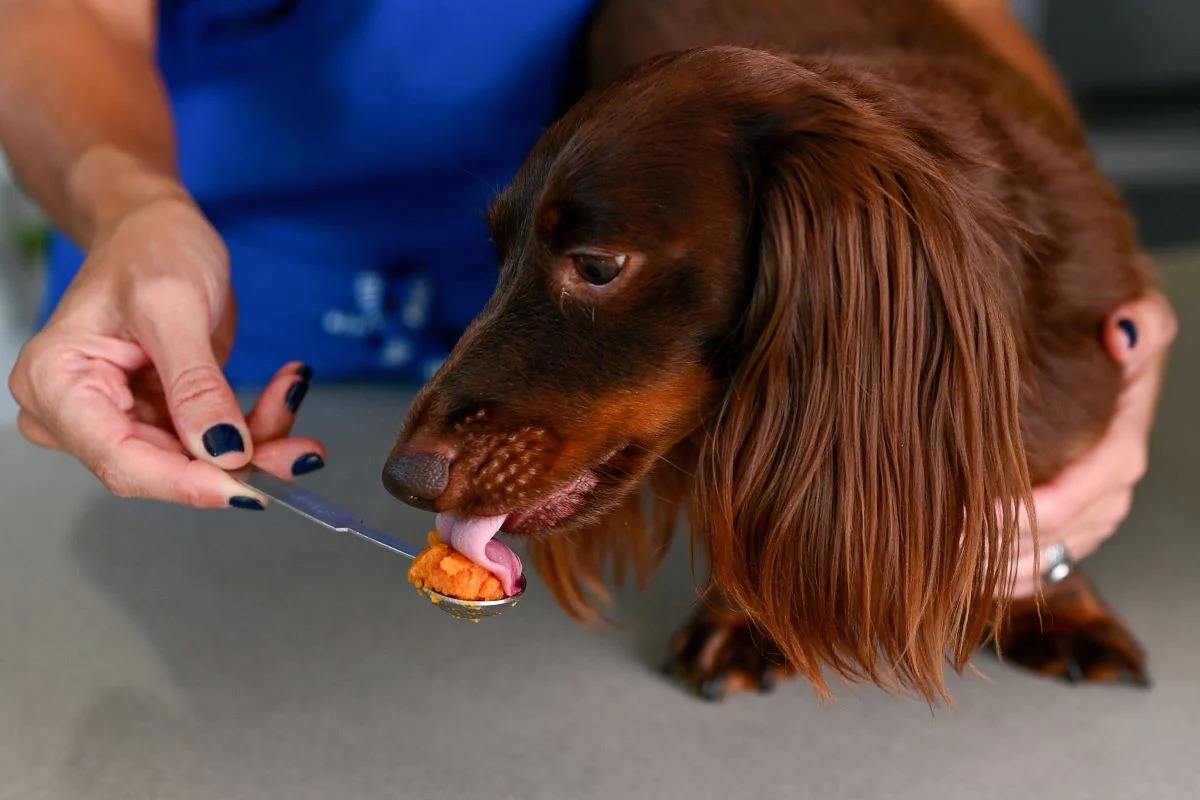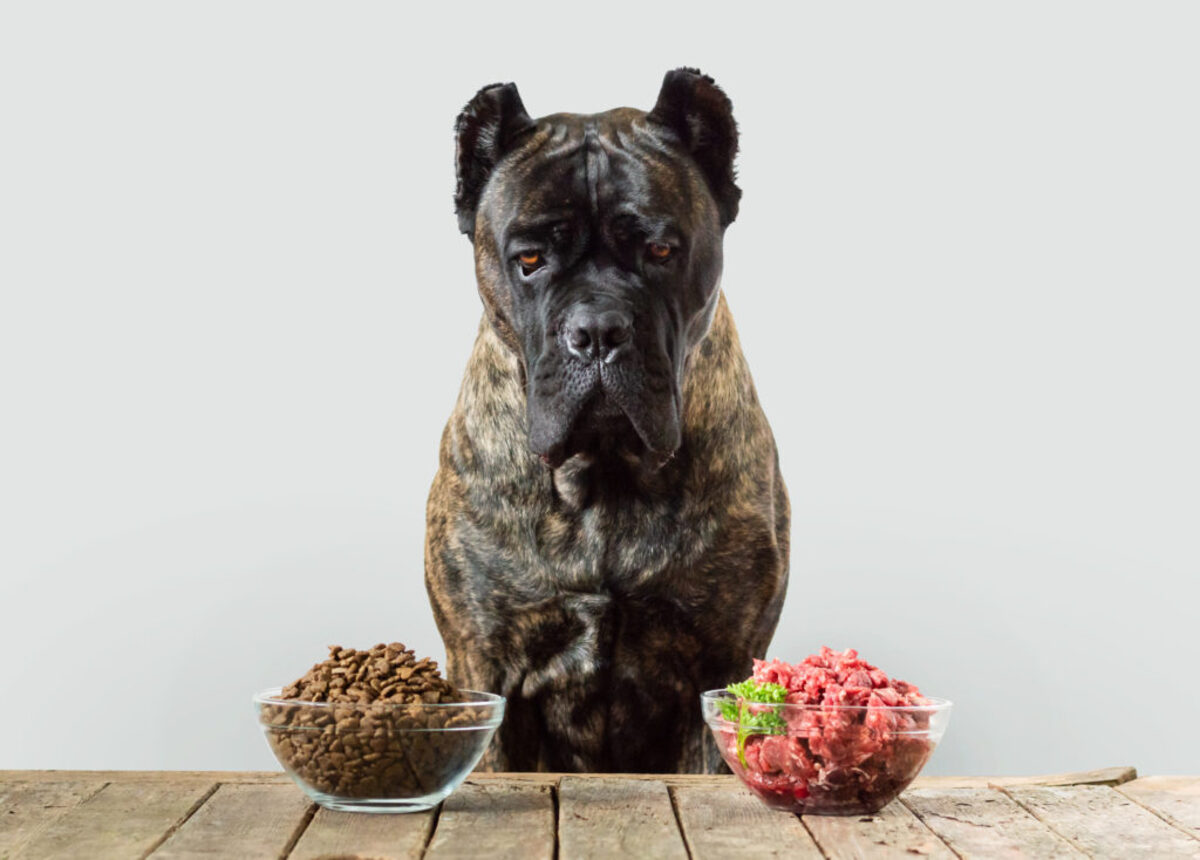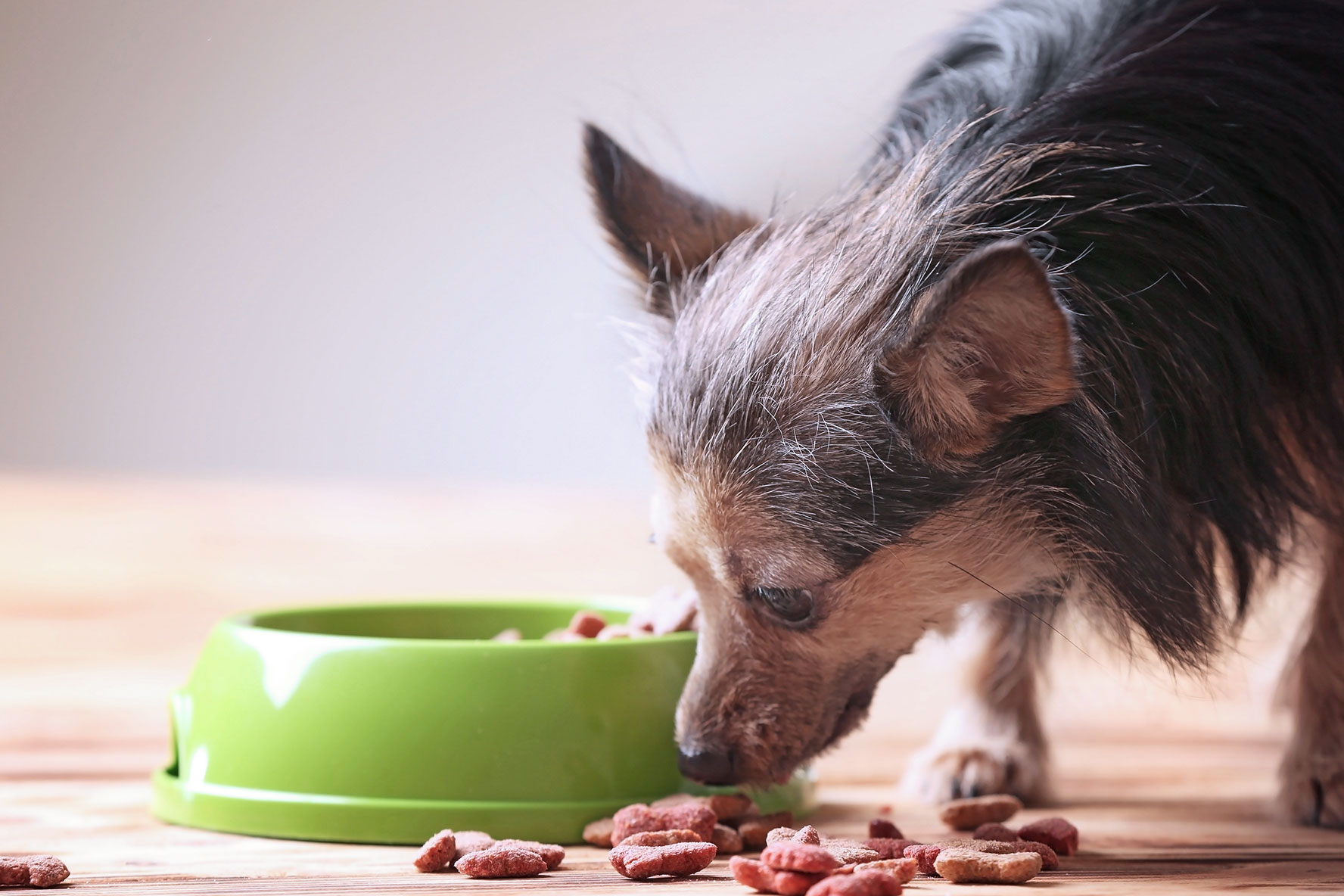Home>Health & Wellness>Nutrition & Diet>What Does Pumpkin Do For My Dog’s Diet


Nutrition & Diet
What Does Pumpkin Do For My Dog’s Diet
Published: January 28, 2024
Discover the benefits of adding pumpkin to your dog's diet. Learn how pumpkin can improve your dog's nutrition and overall health. Unlock the potential of pumpkin for your pet's well-being.
(Many of the links in this article redirect to a specific reviewed product. Your purchase of these products through affiliate links helps to generate commission for Pawsomeoldies.com, at no extra cost. Learn more)
Table of Contents
Introduction
Pumpkin, a beloved symbol of the fall season, is not only a delightful treat for humans but also a beneficial addition to a dog's diet. This vibrant orange vegetable offers a myriad of nutritional advantages that can contribute to your furry friend's overall well-being. From aiding in digestion to providing essential vitamins and minerals, pumpkin has earned its place as a valuable dietary supplement for dogs. In this article, we will explore the numerous benefits of incorporating pumpkin into your dog's diet, as well as the best practices for doing so. Additionally, we will delve into potential side effects to be mindful of when introducing pumpkin to your dog's meals. By the end of this article, you will have a comprehensive understanding of how pumpkin can positively impact your dog's health and how to safely integrate it into their diet.
Nutritional Benefits of Pumpkin for Dogs
Pumpkin is a nutritional powerhouse for dogs, offering a wide array of health benefits that make it a valuable addition to their diet. Here are some of the key nutritional advantages of incorporating pumpkin into your dog's meals:
1. Digestive Health Support
Pumpkin is rich in fiber, which can aid in regulating and improving your dog's digestive system. The soluble fiber content in pumpkin helps in absorbing excess water in the digestive tract, which can be beneficial for both constipation and diarrhea in dogs. Additionally, the insoluble fiber in pumpkin assists in bulking up the stool, promoting regular bowel movements and overall digestive health.
2. Weight Management
With its high fiber and low-calorie content, pumpkin can be a beneficial addition to a dog's diet for weight management. The fiber in pumpkin helps dogs feel full and satisfied, potentially reducing their overall food intake. This can be particularly advantageous for dogs that need to shed a few pounds or maintain a healthy weight.
3. Nutrient-Rich Profile
Pumpkin is packed with essential nutrients, including vitamins A, C, and E, as well as potassium and iron. These nutrients play a crucial role in supporting various bodily functions in dogs, such as immune system health, vision, and skin and coat maintenance. The presence of antioxidants in pumpkin also contributes to overall well-being and may help in reducing the risk of chronic diseases.
Read more: What Does A Dog Anxiety Jacket Do?
4. Hydration Enhancement
Incorporating pumpkin into your dog's diet can contribute to their overall hydration. The high water content in pumpkin can be particularly beneficial for dogs who may not drink enough water, helping to keep them adequately hydrated and supporting their urinary tract health.
5. Digestive Enzyme Regulation
Pumpkin contains natural enzymes that can aid in the breakdown and digestion of food. This can be especially helpful for dogs with sensitive stomachs or those experiencing digestive issues, as the enzymes in pumpkin can support the body's natural digestive processes.
Incorporating pumpkin into your dog's diet can provide a range of nutritional benefits that contribute to their overall health and well-being. Whether you choose to serve it fresh, cooked, or canned (with no added sugars or spices), pumpkin can be a valuable addition to your dog's meals, offering a natural and nutrient-rich way to support their health.
How to Incorporate Pumpkin into Your Dog's Diet
Incorporating pumpkin into your dog's diet can be a simple and rewarding way to enhance their overall health and well-being. Whether you are looking to address specific health concerns or simply provide a nutritious supplement to their meals, there are various methods for introducing pumpkin to your dog's diet. Here are some effective and practical ways to incorporate pumpkin into your dog's meals:
1. Pumpkin Puree
One of the most straightforward ways to introduce pumpkin to your dog's diet is by preparing a pumpkin puree. Start by selecting a fresh pumpkin, removing the seeds and skin, and then steaming or boiling the flesh until it becomes soft. Once the pumpkin is cooked, mash or blend it into a smooth puree. This puree can be added directly to your dog's regular food, providing a boost of essential nutrients and fiber.
2. Pumpkin Treats
Another popular method for incorporating pumpkin into your dog's diet is by preparing homemade pumpkin treats. You can create simple and healthy treats by combining pumpkin puree with other dog-friendly ingredients such as oats, peanut butter, or plain yogurt. Form the mixture into small, bite-sized treats and bake them until they are firm. These homemade pumpkin treats can serve as a delicious and nutritious addition to your dog's snack repertoire.
3. Meal Toppers
If you prefer to keep your dog's diet consistent, you can use pumpkin as a meal topper. Simply spoon a small amount of pumpkin puree over your dog's regular food to provide a flavorful and nutrient-rich addition to their meals. This method allows you to gradually introduce pumpkin into your dog's diet without making significant changes to their existing food.
4. Frozen Pumpkin Cubes
For a refreshing and hydrating treat, consider freezing pumpkin puree into ice cube trays. Once frozen, these pumpkin cubes can be offered to your dog as a cool and enjoyable snack, especially during warmer months. The cubes can also serve as a convenient way to provide additional hydration and essential nutrients to your dog's diet.
5. Commercial Pumpkin Supplements
If you prefer a convenient and readily available option, there are commercial pumpkin supplements designed specifically for dogs. These supplements often come in the form of pumpkin powder or soft chews, providing a convenient way to incorporate pumpkin into your dog's diet without the need for preparation.
By incorporating pumpkin into your dog's diet using these methods, you can provide them with a range of health benefits while adding variety and nutritional value to their meals. It's important to introduce pumpkin gradually and monitor your dog's response to ensure that it agrees with their digestive system. With its versatility and nutritional advantages, pumpkin can be a valuable addition to your dog's diet, promoting their overall health and vitality.
Potential Side Effects of Feeding Pumpkin to Dogs
While pumpkin offers numerous health benefits for dogs, it's essential to be aware of potential side effects that may arise from incorporating this nutritious ingredient into their diet. Understanding these potential effects can help ensure the safe and appropriate use of pumpkin for your canine companion.
1. Digestive Upset
Introducing pumpkin into a dog's diet, especially in large quantities, can potentially lead to digestive upset. The high fiber content in pumpkin, while beneficial in moderate amounts, may cause gastrointestinal discomfort, including bloating, gas, or diarrhea in some dogs. It's important to introduce pumpkin gradually and monitor your dog's response to prevent any adverse digestive reactions.
2. Caloric Intake Considerations
While pumpkin is low in calories and can be beneficial for weight management, it's crucial to consider the overall caloric intake of your dog's diet when incorporating pumpkin. If your dog is already consuming a balanced diet, adding significant amounts of pumpkin without adjusting their food portions may lead to an excessive caloric intake, potentially impacting their weight and overall health.
3. Allergic Reactions
Although rare, some dogs may have allergic reactions to pumpkin. Signs of an allergic response can include itching, hives, swelling, or gastrointestinal distress. If you notice any unusual symptoms after introducing pumpkin to your dog's diet, it's advisable to consult with a veterinarian to determine if an allergic reaction is the cause.
Read more: What Does Laser Do For Arthritis In Dogs?
4. Impact on Blood Sugar Levels
For dogs with diabetes or other conditions that require careful monitoring of blood sugar levels, the introduction of pumpkin should be approached with caution. While the fiber in pumpkin can aid in regulating blood sugar, it's important to consult with a veterinarian to determine the appropriate amount of pumpkin that can be safely integrated into a diabetic dog's diet.
5. Potential Interactions with Medications
In some cases, the introduction of new foods, including pumpkin, can interact with certain medications that a dog may be taking. If your dog is on any medications, it's advisable to consult with a veterinarian before incorporating pumpkin into their diet to ensure that there are no potential adverse interactions.
By being mindful of these potential side effects and consulting with a veterinarian when necessary, you can safely incorporate pumpkin into your dog's diet while minimizing the risk of any adverse reactions. Monitoring your dog's response to the introduction of pumpkin and making adjustments as needed will help ensure that they can enjoy the numerous health benefits that pumpkin has to offer without experiencing any negative side effects.
Conclusion
In conclusion, pumpkin serves as a valuable and versatile addition to a dog's diet, offering a wide range of nutritional benefits that can positively impact their overall health and well-being. From supporting digestive health and weight management to providing essential nutrients and hydration, pumpkin stands out as a natural and nutrient-rich ingredient that can enhance the quality of a dog's meals. By incorporating pumpkin into their diet using methods such as pumpkin puree, homemade treats, meal toppers, frozen cubes, or commercial supplements, dog owners can provide their furry companions with a flavorful and nutritious dietary supplement.
It's important to approach the introduction of pumpkin into a dog's diet with mindfulness and moderation, considering the potential side effects and consulting with a veterinarian when necessary. By doing so, dog owners can ensure that their canine companions can enjoy the numerous health benefits of pumpkin while minimizing the risk of any adverse reactions.
As with any dietary change, it's crucial to monitor a dog's response to the introduction of pumpkin and make adjustments as needed to ensure that it aligns with their digestive system and overall well-being. Whether used as a targeted solution for specific health concerns or as a regular dietary supplement, pumpkin has proven to be a valuable ally in promoting the health and vitality of dogs.
Incorporating pumpkin into a dog's diet is not only a practical way to address various health needs but also an enjoyable way to add variety and nutritional value to their meals. With its rich nutrient profile and digestive support properties, pumpkin has rightfully earned its place as a beneficial and well-loved dietary supplement for dogs of all ages and breeds.
By recognizing the nutritional benefits of pumpkin and understanding how to safely integrate it into a dog's diet, dog owners can take proactive steps to enhance their furry companions' overall health and quality of life. With its versatility and numerous health advantages, pumpkin stands as a shining example of how natural, whole foods can play a pivotal role in supporting the well-being of our beloved canine friends.











